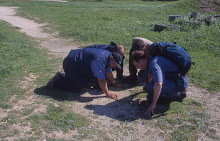Ian Mcwan writes "This is our mammalian conflict - what to give to the others and what to keep for yourself. Treading that line (..) is what we call morality. (..) our crew enacted morality's ancient, irresorvable dilemma us, or me." All this seems self evident, and fundamental to all societies, and yet the reasoning is irremediably flawed. "Us", in effect, does not exist; it is the collection of a number of singularity, few in small societies or in a family, many in large societies. And the resolvable conflict is not between me and a non-existant us (an abstract us), but between individuals with theyr legitimately conflicting itnerests. Law is an attempt at regulating these ever-changing and evolving relationships. and morality is personal law. Selfishness often (but not always) does not allow conflicts to be resolved, and this is the base for the importance we put on altruism. But commercial conctracts, for instance, are perfectly compatible with selfishness and indeed such contracts, based on not-altruistic feelings, can contribute much to the well-being of the society.
Margareth Thatcher said that society - us - does not exist. She was right, since ther is not a social body resulting from the collection of individuals, and she was wrong, since relationships do exist.
Anyway, there are circumstances wehre it is natural to use the pronoun us. For instance, supporters of a football team usually say "us" when referring to the team - even if they are only supporters, not actual players. "us" is used always in contrast to "them". Collectivity is a collection of relationship, "us" is a super-individual body that springs when it is necessray to fight an enemy. Self-sacrifice is rarely necessary in peace and in ordinary relationships, it is instead unavoidable in war, be it the war against another nation, another class, or (in the case of Christianism), against the Evil.
mercoledì 6 agosto 2014
Iscriviti a:
Commenti sul post (Atom)

Nessun commento:
Posta un commento